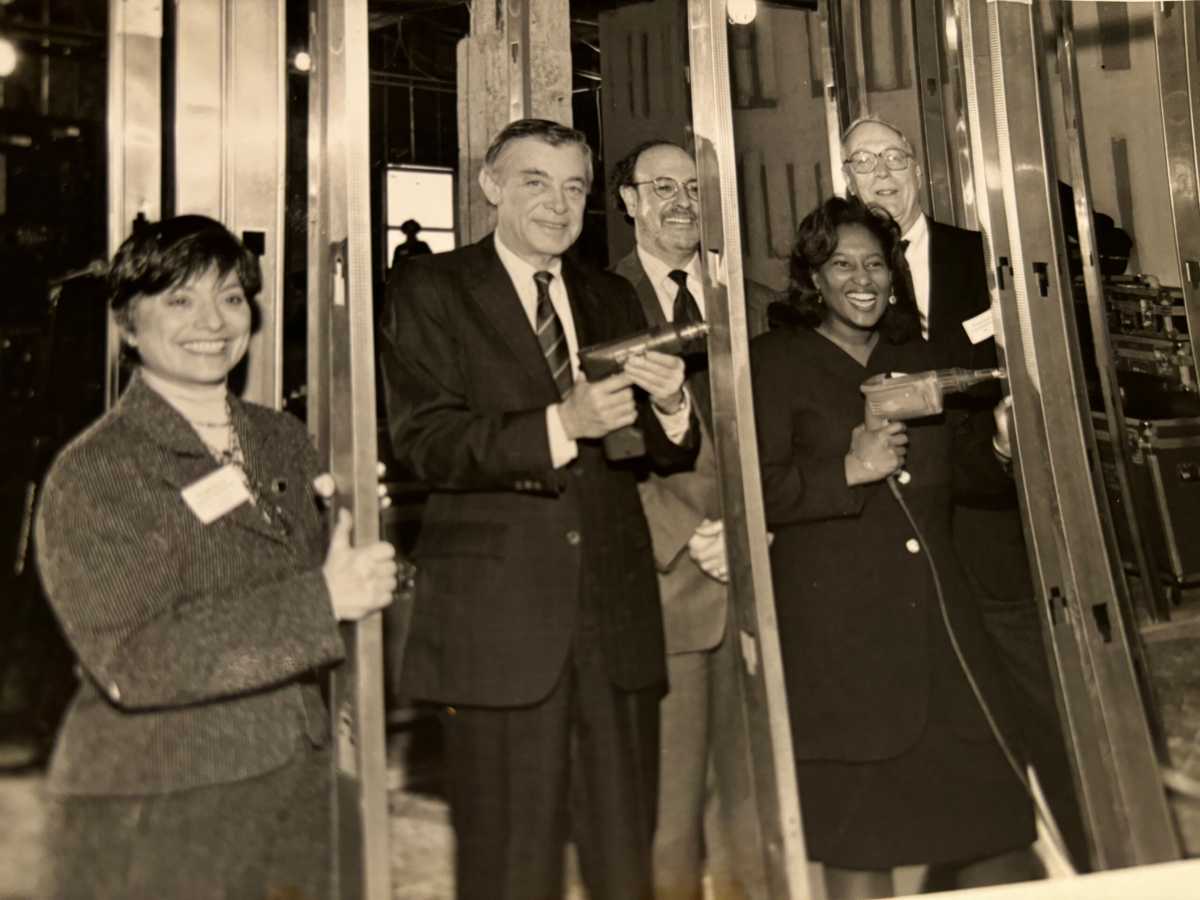This Black History Month, Brooklyn Paper sat down with a few Black and brown individuals who serve as pioneers in their fields and are leading the way as modern-day history makers.
Atiba Edwards
Last fall, Atiba Edwards took the reins as the first Black male to hold the title as CEO and president at the Brooklyn Children’s Museum in the organization’s 125-year-old legacy. Another Black man known as Lloyd Hezekiah led the museum from 1964 until 1984 as director. That title was changed to president in 2001 and later became CEO and president. Edwards is the first Black male to hold that dual position.
After just a few months in the position, Edwards said the role has been both refreshing and rewarding. As a revolutionary in the 21st century, he said part of his responsibility is making sure future generations see themselves in the workforce. That job requires time, attention, care and ultimately, exposure.
“We’re all gatekeepers with different sets of keys that open up different sets of gates which get bigger and prettier as we move up. So I see myself as someone who can open the gate for those who come behind me but I can really just rip those gates down,” he told Brooklyn Paper. “I think there’s a lot more that can be done there and it requires a level of investment and resources but one of the key things it requires are the right people in the right places.”
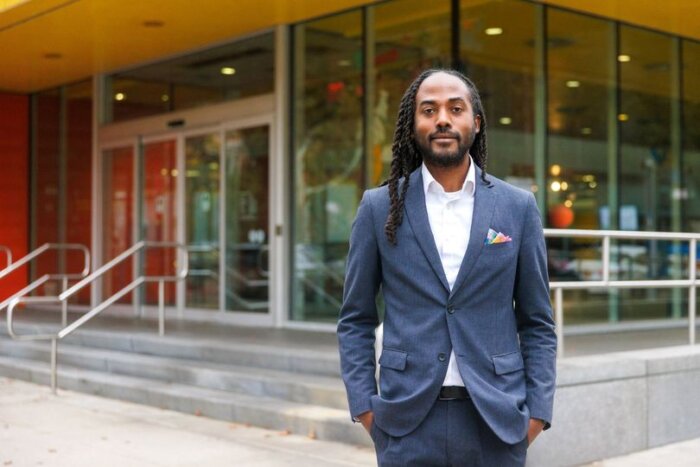
History has proven that if people do not see anybody who looks like them in a certain position or career field, they won’t see that field as an opportunity for them. With that in mind, Edwards says he is continuing workforce development efforts by encouraging young minds to invest time into their passions and by stepping into previously uncharted roles.
“We’re one part of a long game but we’re showing up and putting our best foot forwards to make sure people can see themselves and their future generations in a world that normally didn’t exist in them,” Edwards said.
Wes Jackson
Wes Jackson, founder of the Brooklyn Hip Hop Festival and current president of BRIC, is one example of a creative mind who didn’t see himself represented in his current field. Growing up in the south Bronx but attending a private school in Manhattan, Jackson said he was well aware of racial disparities among the workforce at a young age.
“When you don’t see yourself in the zeitgeist, it’s psychologically and spiritually brutal, and then you might do brutal things to yourself,” he said. “That’ll tear you apart. It’ll make you question who you are, make you want to be something that you’re not.”
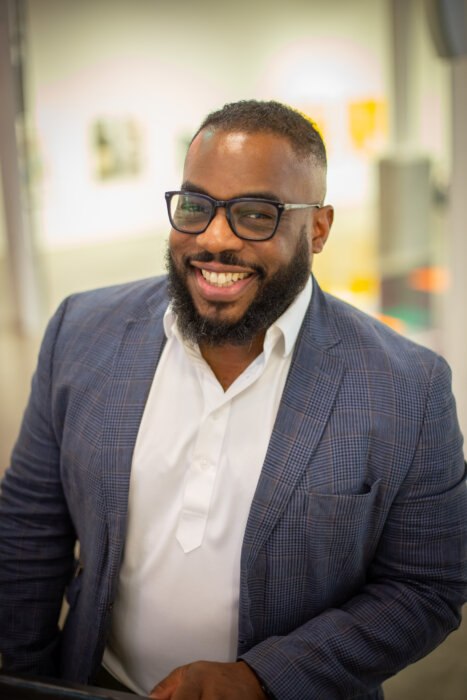
Jackson chased his dreams of being a filmmaker by obtaining an English degree from the University of Virginia and a media studies degree from the New School.
His aspirations changed as he grew, but what remained at the center of his work was his love of arts and culture. In 2005, he and his wife created the Brooklyn Hip Hop Festival, a cultural celebration highlighting the genre’s positive effects and artistic progression. With Jackson and his wife coming from different backgrounds, he said the journey was full of new beginnings and fresh starts.
In his current position at BRIC, Jackson focuses on shaping the media field for artists and showing the next generation that there are career paths where their passions and talents collide.
“Your path is going to be weird, it’s going to be rocky, it’s going to be challenging,” he said.
Onida Coward Mayers
Some would say Jackson’s work wouldn’t be possible without the work of Onida Coward Mayers, a Black woman named as the founding director of Brooklyn Community Access Television, known today as BRIC.
Born in Panama and raised in Brooklyn, Mayers began leading in her field at the young age of 25. To see a Black woman leading an arts organization in 1989 was unorthodox, but as a first-generation immigrant, Mayers led her team with enthusiasm and inspiration.
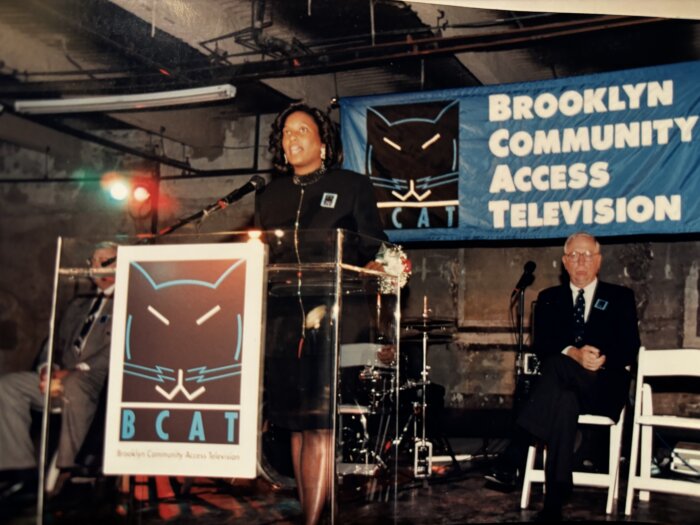
“Growing up I always wanted to help people, at a young age it seemed that doctors held the profession that helped people so I wanted to do that, until of course I had to actually dissect a frog,” she said. “As a first-generation immigrant, my mother took me with her to every community meeting and I watched her advocate for her needs and mine, as well as her community. I watched her take on politicians and I also watched her work long hours, always putting me first. This shaped my behavior as I grew up. I became that person that my friends sent in to close the deal.”
Being the first to step up to the plate, Mayers refused to feel pressure from her colleagues but instead leaned on the influence of her community to encourage her work.
“It was simple for me. It was all Brooklyn, all the time,” she told Brooklyn Paper. “Representation does matter. Black history is American History.”
Mayers said she also had to be courageous to take the helm when she did.
“I was pretty fearless, but it was clear that the majority of our board and executives were white people who were controlling Brooklyn at the time but somehow [they] released the reins to this young Black girl born in the country of Panama,” she said. “That is until Black and brown Brooklyn responded with their music, culture, ideals, politics and stories in the form of programming that inspired more to do the same.”
Adina Erwin
Another history-making Black woman is Adina Erwin, executive vice president of business operations and general manager of Barclays Center. Like Jackson and Edwards, Erwin said she wasn’t aware her position existed when she was young. Luckily, she was exposed to working in sports arenas early in her career when she began working a part-time receptionist gig at the Charlotte Coliseum, where the Hornets — North Carolina’s professional basketball team — used to play.
“When I started on this journey, there weren’t many Black and brown faces working in the business unless they were part-timers or housekeeping. They definitely weren’t managing these spaces,” she said. “I think people don’t realize that this is an environment or this is a path to be able to follow because they haven’t been exposed to it.”
Today, she is one of the few Black women to manage an NBA arena. The field continues to evolve, according to Erwin, but not without leaders like herself recognizing that they’re paving new ways for future generations.
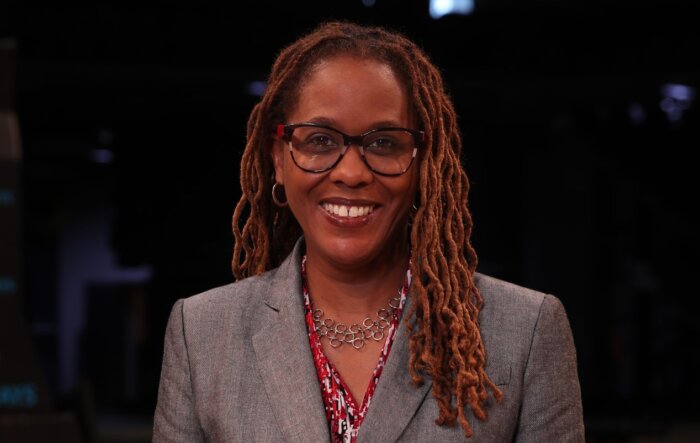
“In order to be successful in this space you have to get comfortable with walking into rooms and being in groups of people where there is no one else in those spaces that look like you,” she said. “You get to a point where it doesn’t distract you from what you need to do which is show up in those spaces and represent to the best of your ability.”
To continue this legacy of paving new career pathways, the Black leaders Brooklyn Paper spoke to agree that society must make spaces for these voices to be heard and leave room for them to see a future beyond what they’ve always known.


